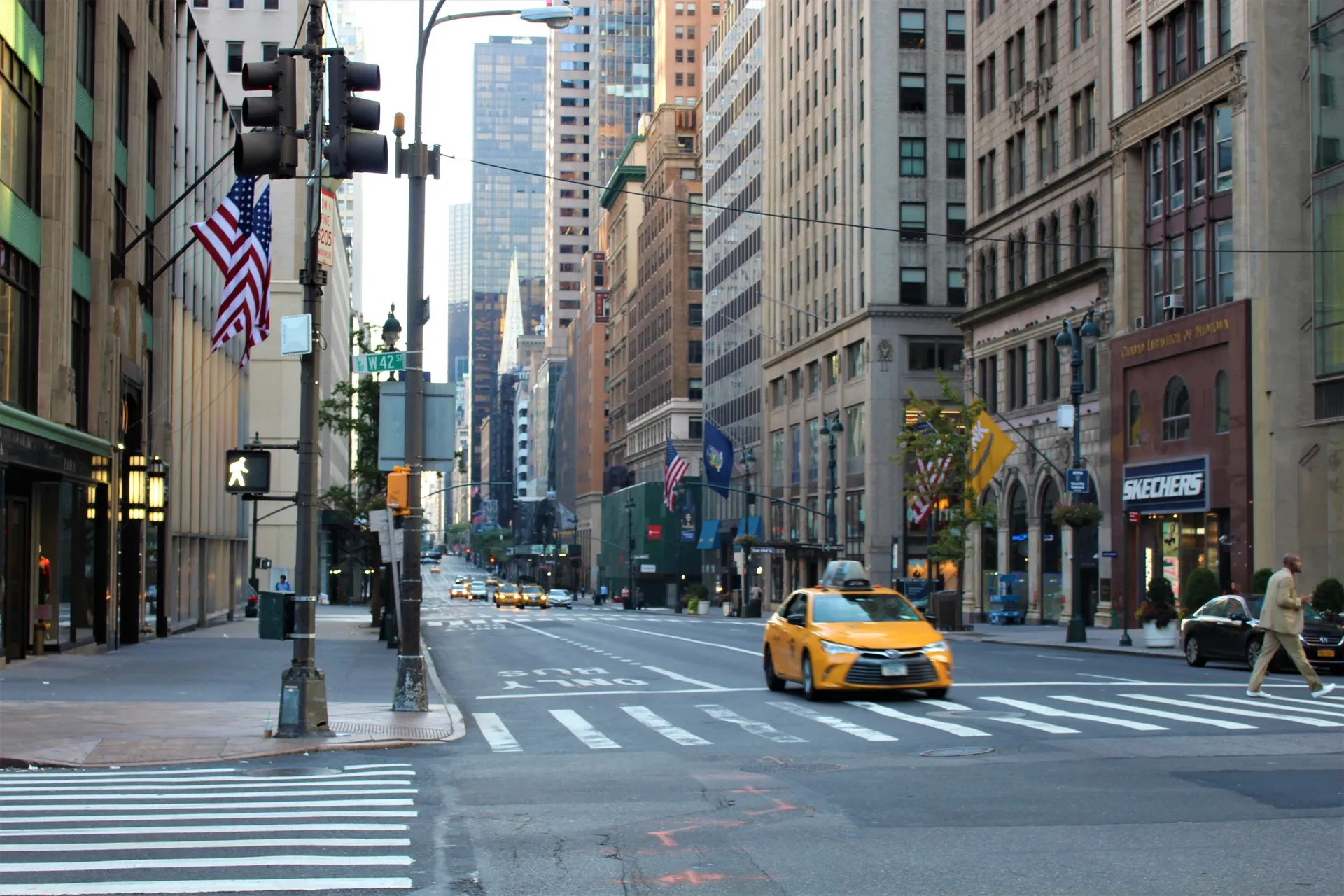I never thought I’d miss traffic. But last Sunday night, I drove into New York City, and my heart broke. The George Washington Bridge was empty. The West Side Highway was empty. Midtown was empty. There were no horns from angry drivers or laughter from groups taking up too much space on the sidewalk. On avenues, street corners and boulevards: silence.
New York is drowning. With around 87,000 cases of the novel coronavirus and over 5,000 deaths as of Thursday afternoon, America’s largest city has been an epicenter of the pandemic for several weeks. To slow the virus’s spread, New York’s cultural institutions have been temporarily cast off the ship as extra weight imperiling the city’s residents. Broadway, where I saw “The Lion King” and “Mary Poppins” as a child, has taken a prolonged curtain call. The Metropolitan Museum of Art, which I visited on a high school field trip, is closed.
New York today feels like an artifact of the city I grew up beside. I’m from Tenafly, New Jersey, but I often introduce myself as living “20 minutes from NYC.” In part, I aim to avoid jokes that I’m from the armpit of America. But I also know how New York stands in public consciousness as a place of potential — where business, music, fashion, food and the Statue of Liberty converge.
I realize now that I didn’t take advantage of my proximity to New York. Sure, I visited a David Bowie exhibit at the Brooklyn Museum and walked through Central Park last summer with friends. But I could have done more. For the foreseeable future, I can’t. Safeguarding a city I love and the people who live there — including my brother and sister-in-law, who is a doctor — means staying away.
Usually, it takes a shock to change behavior. Perhaps a loved one dies, or we narrowly avoid a serious car accident. We feel fragile, made cognizant of what Joseph Heller described in “Catch-22” as a secret most people ignore: “Man was matter … Drop him out a window and he’ll fall. Set fire to him and he’ll burn.” We seek new adventures because we suddenly doubt we’ll be able to do the things we want later.
Beyond spurring us to question social inequity and federal government inefficacy, the coronavirus should push us to reevaluate how we spend our time. For now, whoever can social distance must do so. Whoever is able should consider how they can support groups who are disproportionately impacted by the virus’s economic impacts, like hourly workers or the homeless. All of us, in whatever quiet we can find, should plan for how we’ll live differently in whatever a post-coronavirus world will look like.
What places have we taken for granted, whose heartbeat and familiar symbols seemed an immutable law of the universe? For me, it’s New York. Weekends I could have spent sneaking into jazz clubs, perusing local bookstores and trying food that slightly exceeds my tolerance for spice were instead spent binging television shows or napping. I floated through time rather than seizing it.
As each quarter at Stanford cascades into the next, I wonder whether the rest of my life will go by so quickly. It might. No one is too old to make the most of the time they have left. But no one is too young to start. Just as early action against the coronavirus could have saved lives, so too can early reflection ensure we live meaningful ones.
Who are the people we didn’t hug hard enough? In the summer of 2013, my late grandfather took me out for ice cream and gripped me tight before my mom and I left for the airport later that day. Several months down the line, two days after his birthday and the day before mine, he died. My family knew it was coming in the short-term, just as we all know it will come in the long-run.
Prior to my grandfather’s passing, my aunt held a phone to his ear, and I struggled to compose myself as I said I loved him and that I was proud of him. I’m glad I got to say those words. But I could have said them more often and called more frequently in the years prior. My three living grandparents are in their late 80s and early 90s, one of them with respiratory issues. All are in high-risk categories for COVID-19. They live abroad. I likely won’t get to see them this summer as I hoped.
What are we deferring for later that we may get to do only today? The coronavirus shows that everything can stop for everyone, much as a personal shock shows that everything can stop in our individual life. That doesn’t mean we throw away our responsibilities. But with the humility of knowing that nothing lasts forever — not us, not Broadway, not a city, not a country, not humanity — we should dare to live a little faster, pursue our dreams with a little more energy and love our friends, families and partners with a little more intensity.
Estimates vary for how long the pandemic will last. It could be several weeks. Most likely, it’ll be several months, maybe more. Tomorrow will bring more self-isolation, more deaths because of a botched federal government response and more pain for millions across America and around the world. Now’s as good a time as any to try and think about how we’ll live differently the day after.
To adapt a question Mary Oliver asks at the end of her poem, “The Summer Day”: What is it you’ll plan to do with your one wild and precious life?
Contact Nadav Ziv at nadavziv ‘at’ stanford.edu.
The Daily is committed to publishing a diversity of op-eds and letters to the editor. We’d love to hear your thoughts. Email letters to the editor to [email protected] and op-ed submissions to [email protected].
Follow The Daily on Facebook, Twitter and Instagram.
